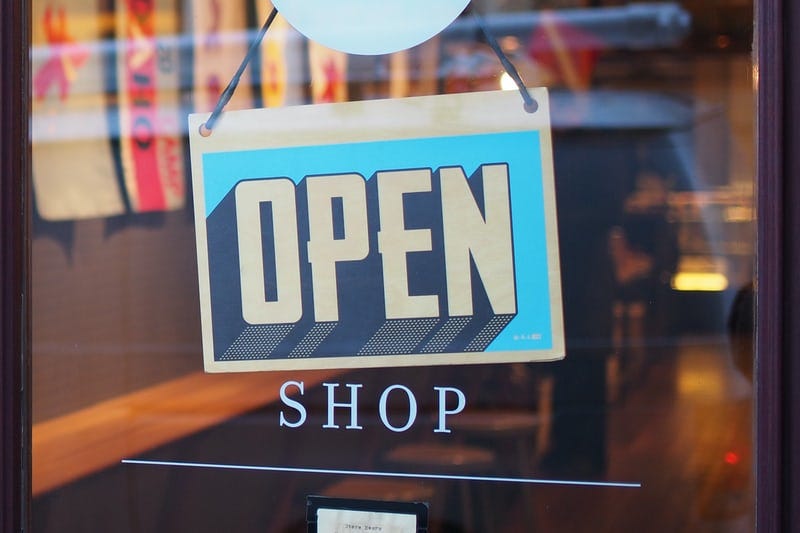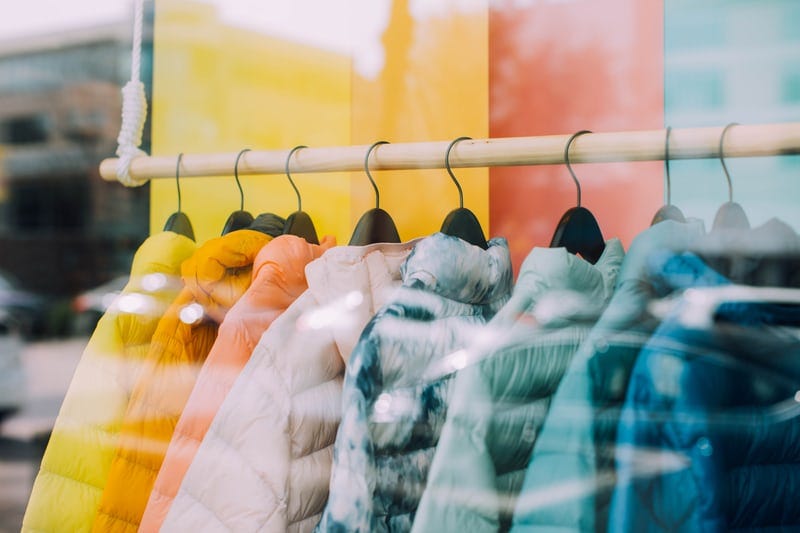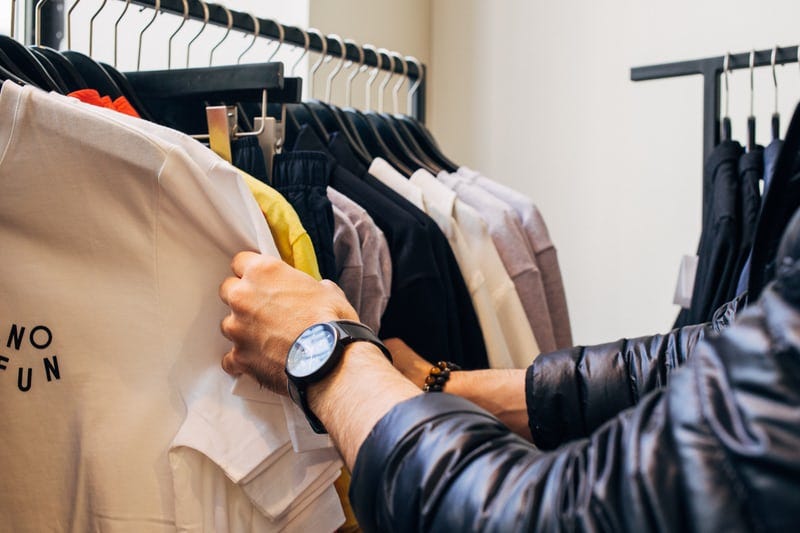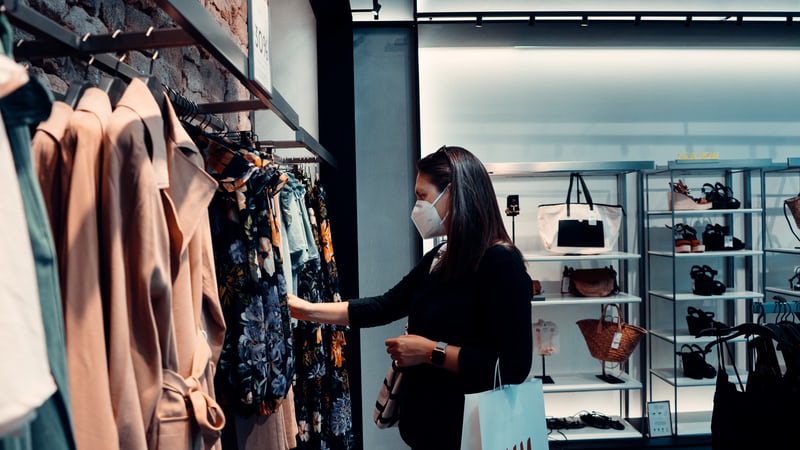As a personal finance guru, one of my biggest worries coming out of the pandemic is that Americans will sabotage themselves financially.
If you could afford to spend precious time working from home, saving, cooking, and being with family throughout the pandemic till today, it’s highly likely you are also in a better financial position than pre-pandemic.
According to Pew Research Center, 2/3rds of Americans are in a better financial situation than they were pre-pandemic. Woo hoo! Thanks to fiscal and monetary stimulus measures, Americans earning under $75k for singles, $112,500 for households, and $150k if married/ filing jointly could qualify for 3 rounds of stimulus checks and the rest of us took advantage of low-interest rates, deep discounts at the start of the pandemic in real estate and in the market to grow our wealth.
Front-line workers, low-wage earners, minorities, and those in middle management were either exposed to covid the most or dealt with poor working conditions/work-life-balance so they quit at rapid rates. They lead the Great Resignation into full-force as they evaluated their circumstances and took advantage of the entrepreneurial revolution, 13+ year bull market, and freelancing opportunities instead of working for their physical labor and time to stay safe.
For the top decile, specifically the top 10% and above, they grew their wealth collectively by $2 trillion+ correlated to the roaring stock market. In addition, they took advantage of bottom low-interest rates, refinanced a home or couple, had the opportunity to cheaply pay off good or toxic debt, WFH, save more, spend less, build up their financial cushion, and a robust investment portfolio.
Since keeping cash isn’t as attractive during low interest rates, but still always a necessity, this gave investors the opportunity to pour their money into high flying tech stocks, meme stocks, retail trading platforms such as Robinhood and WeBull, crypto, and caused the housing market to literally light on fire and overheat. Several novice investors, those who’ve never lived through a bear market, confused brains with a bull-market this past year and a half. I hope they calm their outlook a bit since 2022 and beyond isn’t projected to be as frothy or splendid.
Savings rates by Americans also increased to over 20%, the standardized recommendation since there was nowhere to go! Since travel, luxury, leisure, and hospitality eats into the budget the most, Americans resorted to tackling their financial means and diversify their holdings instead. Definitely a worthwhile pay off, possibly better than priceless experiences. But there’s no doubt consumers still shopped till they dropped with low inflation and interest rates. At the time of the dip in 2020, Americans who bought into real estate and alternatives got in at the opportune time when everyone was told to sell and certainly grew their collective worth as housing prices are up 35% this year alone. With more time spent at home, more folks invested, and grew their wealth through deals they couldn’t take advantage of before.
But now as the vaccine rollout has taken shape, U.S. borders have opened up to foreigners, except South Africa due to the new strain discovered on Friday, the holidays are rolling around, and there’s a massive craving for real life again, Americans believe they deserve a big break, something that might unfortunately derail their hard work and pent up sayings that they’ve diligently built up for the last year and a half.

Too Much Trouble
When I first took part in the marshmallow test in Kindergarten, I was stunned at how few of my classmates couldn’t resist the temptation and went all in devouring the marshmallows within an instant. I distinctly remember they abruptly cleaned their faces after stuffing a handful of marshmallows in their mouths lying straight to our teacher’s face assuming she would never notice.
We soon found out she was observing us through a 60 lb camera the whole time. It was 2005.
This is how Americans collectively feel right now. Although we should be ashamed as an advanced industrial country that we weren’t able to step up in mitigating the spread of covid-19 faster than others as a health care behemoth and Pharma leader with top hospitals and medical schools, when it comes to our finances, many of us blew it out the water thanks to the reversal of the market and its record highs. We are eager to live like there is no tomorrow despite only half of America vaccinated. Remember to not conflate your skills with the market. Don’t get too courageous — it was hard not to have your portfolio up 20–50% this year.
If we’ve learned one thing from the pandemic, besides to plan for the worst, hope for the best, it is that investing is the only way to truly become free. The more W2 income you earn, the more taxes you give to Uncle Sam.
Owning a cash flow producing business, real estate, any type of intellectual property or just being invested long-term will help you become financially free and flexible, not subject to higher tax rates and instead earn tax-differed income through deductions, contributions, expenses, etc. Since Biden and democrats are currently proposing increasing the marginal tax bracket for those earning $400k+, it’s important to not sabotage yourself into believing with a high income you’re all set especially since the more we earn, the more we want to spend. With a business, you can easily file to the IRS a lower yearly AGI than your actual thanks to tax-efficient strategies. Plus not only your business is appreciating while you sleep and vacation, you aren’t tied down to a fixed salary, you can place yourself in the lowest tax bracket possible, and reinvest as much of your earnings as you choose back into the business.
Up to a certain income, your time and effort in earning 7, 8 figures each year may not be worth it, especially if it’s only based on performance pay. Fortunately in higher level positions, majority of compensation is based on equity through stock options, grants, and bonuses, not physical output or hours clocked-in.

Why No One Seems Worried About Higher Prices
Big box retailers and brick and mortar behemoths such as Kroger, P&G, and Target’s earnings in Q3 not only blew it out the water, they are confident their shelves are stocked for the holidays and are reassuring their customers there’s no need to panic about low inventory. Yet higher prices are a concern as more products are expensive to ship and deliver so they must be marked up in stores. Despite worries about supply chain shortages presented through the media, I don’t find them to play an impact in grocery stores or in small local shops, at least in the ones I’ve been to, as much as I thought. Though, when it comes to prices, I do see an increase but that hasn’t stopped eager cash cushion buyers with massive pent-up demand due to lockdowns. Foot-traffic seems to resemble pre-pandemic levels, especially in airports during the Thanksgiving holiday.
Inflation means there is more aggregate demand than supply. The economy is recovering and inflation is certainly better than deflation but at this current point in the pandemic, more like an endemic, Americans are revenge spending disregarding price tags.
I’m afraid once things open up even more, Americans will sabotage themselves and their savings will be washed away. Higher savings rates will be vanished and the national rate will plummet in no-time if Americans continue to spend this frivolously. It’s always suggested to live and act as if you are less wealthy than you truly are and to not directly increase your cost of living in proportion to your income in order to keep things in perspective and not fall into lifestyle inflation.
The most recent spike in prices has been caused by a labor shortage, supply chain constraints, and not enough demand for workers as the Great Resignation takes shape. Although I’m not a coffee drinker and oppose the latte habit, my local Starbucks was closed for 3 days due to a lack of baristas! It’s really happening folks and customers are HANGRY.
This shortage requires companies to entice top talent and hirers through raising pay, bonuses, and offer enticing perks. At the start of the pandemic we heard of the chip-shortage. Companies, manufacturers, and producers limited supply and some shut down completely. We didn’t expect such massive demand in home deliveries, media, real estate, at-home fitness, and WFH. With this demand, Big Tech, and consumer staple monopolies most notably Amazon hit the trillion-dollar-mark and hundreds of unprofitable companies made unicorn status through the SPAC/IPO craze this year. It was a terrific rebound for investors and startups alike. Yet the influx in demand and deliveries caused companies to scramble and ramp up production 24/7 at the ports. Inflation and supply chain constraints are not transitory and don’t get resolved overnight.
Although consumers were spending big in alternative places during lockdown and beyond, they had constraints which meant they couldn’t spend as much as they hoped to, and in this case, it was a great learning lesson and opportunity for them to improve their financial situation. Those who were already well-off and financially stable pre-pandemic spent lavishly this past year as well and probably did some more as LVMH and luxury retailers exceeded sales from the prior year. Since majority of the top 10% and above’s net-worth is tied to the stock market, businesses, and intellectual property, they continue to invest in themselves inside and out. Yet whichever income class you were in in 2020, everyone had constraints and needed to budget. We were all stuck inside and tourism, travel, leisure, hospitality, and dining were shut-down for a few months. We all needed to improvise and adjust our habits which meant spending less on big ticket items causing hyperinflation today.
But with limitations comes massive pent-up demand. With this demand mixed with fiscal and monetary stimulus, comes regret and a yearning for real-life again. Once vaccinations rolled out, within a few days, the TSA recorded a record number of screened passengers and by summer 2021, Americans were heading to Europe to live their best lives impacting inflation levels.

Too Much Trouble
All this spending is undoubtedly terrific for the economy yet is hurting the bottom percentile the most where essential staple goods are costly and there aren’t always alternatives. To combat inflation, interest rates must slowly rise through the Fed’s tightening efforts to reverse QE measures that were put into palace in March 2020 when the Fed purchased $120 billion of bonds to lower unemployment, inflation, interest rates, and help people get back on their feet by borrowing cheaply, eroding debt, investing, and this lead to new asset classes from crypto to meme stocks to be formed leading to froth and sky-high valuations. We love our purchasing power yet we have none of it anymore with all this spending.
Last month the recorded CPI (Consumer Price Index) rose to its highest point in 31 years to 6.2%. This jump was certainly unexpected and illustrated a rapid reversal from 2020. Now the U.S. is surprisingly behind other countries for being slow on their hawkish measures. Many European countries have already increased interest rates but that might change any day now as the Omicron variant has been detected. This can entail lockdowns, a market correction, shut-down economy, and March 2020 all over again. It’s difficult to determine what the Fed should do with interest rates as everything related to covid is in limbo but inflation sure needs to be handled as this virus is going nowhere.
Gas, retail, and food prices have dramatically risen in the past few months and these prices are unrealistic. Too much spending is bad after all.

Equilibrium
Currently the Fed plans on starting to taper its monetary stimulus by the end of this year into next but this must be done at a steady pace that will not cause another recession since unemployment is still higher than in pre-pandemic levels and inflation is targeted at 2% not -2%.
Inflation in itself is scary because we have less purchasing power. Everything is more expensive with a less valuable dollar as the time value of money today is worth more than in the future. $3m is the new $1m and it costs more to buy less so our savings are eroding especially with bottom low-interest rates but in terms of paying off debt, which Americans are known for taking advantage of, it takes money that will be worth less tomorrow to pay it off. This helps borrowers who can pay a lower interest rate to pay off their debt and lenders who will get more interest in borrowing thanks to lower interest rates.
Since inflation means the economy is rolling and out of a recession, employment is rising alongside wages and inflation is catching up with it, for the most part. It’s reassuring to hear that millions of Americans are better off financially than they were 1, 2 years ago thanks to the Fed’s superpower.
Although the 3 rounds of stimulus checks definitely allowed millions to get back on their feet and were a must, once they expired, surprisingly jobless claims and the national unemployment rate didn’t dip as much as economists predicted illustrating the strength of the economy, market, and workforce. A Great Resignation mixed with a labor shortage rarely go hand-in-hand demonstrating the importance of monetary stimulus into consumer’s portfolios and pockets. With an abundance of positions and flexible work options, Americans finally feel in control of their career and there’s no better feeling than that. But to be safe than sorry, always follow the conventional wisdom of saving more than you spend and buy what you need, not want to stay afloat.
Nothing is disappearing.
Trust me.

